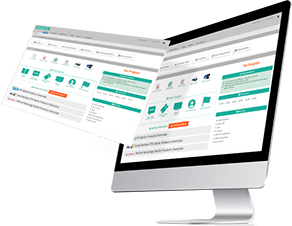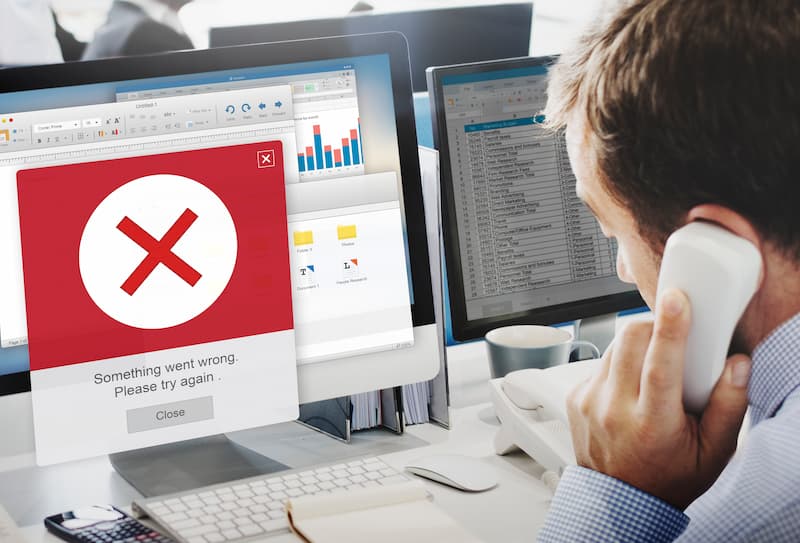The recent IRS data leaks sent shockwaves through the tax world. Over 70,000 taxpayers had their sensitive information exposed by a rogue contractor.
The incident left many feeling vulnerable and anxious about their financial privacy. Clients have been flooding tax professionals with questions about the breach and its potential consequences.
How to Reassure Your Clients About Tax Data Leaks
If you’re a tax consultant, your clients’ peace of mind is at stake. Below are some common questions clients might ask and how you should answer them to ease their concerns:
What Should I Do if I Notice Suspicious Activity on My Accounts?
If you spot unusual activity, such as fraudulent charges or tax filings you didn’t authorize, report it to the IRS immediately. You should also check your credit reports for any unauthorized accounts. Placing a fraud alert or credit freeze can help prevent further misuse of your information.
Will This Affect My Tax Filings for This Year?
No, the data leak shouldn’t impact your ability to file taxes this year. The IRS hasn’t reported any delays or issues in processing returns because of the leak. However, if you received a notification from the IRS about your data being compromised, it’s a good idea to apply for an Identity Protection PIN to add an extra layer of security when filing.
Could My Business Tax Data Be Involved in This Leak?
The IRS hasn’t specified whether business tax data was included in the breach, but it’s possible. If your business uses software that integrates with IRS systems or your personal tax info was leaked, your business data might also be vulnerable. Consider checking your business tax return software and ensure it has up-to-date security features.
Could I Be Liable if Someone Uses My Leaked Data?
No, you won’t be held liable if someone uses your leaked tax information to commit fraud or identity theft. However, you may need to deal with the consequences, such as disputing fraudulent charges or working with the IRS to resolve tax identity theft issues. The IRS has resources available to help victims of identity theft, and you should notify them immediately if you notice anything suspicious.
Should I Switch Tax Software After This Leak?
While it’s unnecessary to switch software solely because of this leak, it’s an excellent time to evaluate the security features of your program. Look for IRS-approved tax software with strong encryption and multi-factor authentication. If you’re a tax preparer, make sure you have a top tax preparation software for professionals that complies with the latest security standards to protect your clients’ information.
Steps to Reduce the Risk of Future Data Leaks
Along with answering your clients’ questions, taking steps to lower the chances of a future data leak is important. Here are some practical actions you can take to keep client information safe:
Develop a Data Breach Response Plan
After addressing common concerns about the IRS data breach, take the following steps to minimize the chances of it happening to your clients:
If your firm experiences a data breach, you must have a plan ready. It should include steps to notify clients and comply with state and federal laws. The IRS and the FTC provide guidelines for responding to identity theft and data breaches. Key actions include:
- Quickly notify affected clients.
- Contact the IRS Stakeholder Liaison for guidance.
- Update passwords and tighten security measures immediately.
- Consider adding cyber liability insurance to cover the costs of a breach.
Implement a Communication Policy and Training Program
Educate your employees about phishing attacks and other online threats. Hackers may impersonate business software providers and send fake updates containing malware. To prevent unauthorized access to taxpayer data, set clear guidelines for safe email practices, secure internet browsing, and proper device usage.
Use Encrypted Email and Client Portals
Set up secure portals for exchanging sensitive data with clients. Cloud-based tax preparation software often comes with built-in encrypted communication channels. Make sure your clients understand how to use these portals to safely share documents without risk.
Strengthen Wi-Fi Security
An unsecured Wi-Fi network can open the door for hackers, especially if you’re handling sensitive client data. Public networks make it even easier for attackers to get in. Secure your office Wi-Fi with strong encryption and use a VPN when working remotely.
It’s also a good idea to:
- Set up WPA3 encryption and a unique, strong password.
- Change your Wi-Fi passwords regularly and restrict guest access.
- Educate employees on using secure networks for any work involving client data.
Educate Your Clients
Many clients are unaware of how to protect their own data. Share resources like IRS Publication 4524, which offers easy steps to safeguard personal information. Encourage them to use encrypted email or portals when sending tax documents.
Keep Software and Systems Up-to-Date
Old software can have vulnerabilities that hackers can exploit. Using cloud-based tax software helps as updates happen automatically, but you still need to ensure everything in your office is current.
Take these steps to stay secure:
- Enable automatic updates for all devices and software.
- Check your security systems regularly for outdated features.
- Replace legacy systems that no longer receive updates.
- Work with your IT provider to monitor and test for weak spots.
Regularly Audit Access to Client Data
It’s essential to regularly check who has access to client data, even if you trust your team. Mistakes happen; unauthorized access can lead to significant data breaches or compliance issues. Regular audits help you catch any potential risks before they escalate.
Review user permissions in your professional tax software each month to stay on top of this. Limit access to sensitive data based on what each employee needs for their role. Set up alerts for any unusual account activity, and when someone leaves the company, make sure to revoke their access immediately.
Final Verdict
Your clients count on you to safeguard their financial privacy. While the recent IRS data leak has shaken trust, you can proactively protect your clients’ sensitive information. Use the tips and strategies above to secure your systems, educate your team, and keep client data safe. After all, staying ahead of threats is just as important as filing on time.






